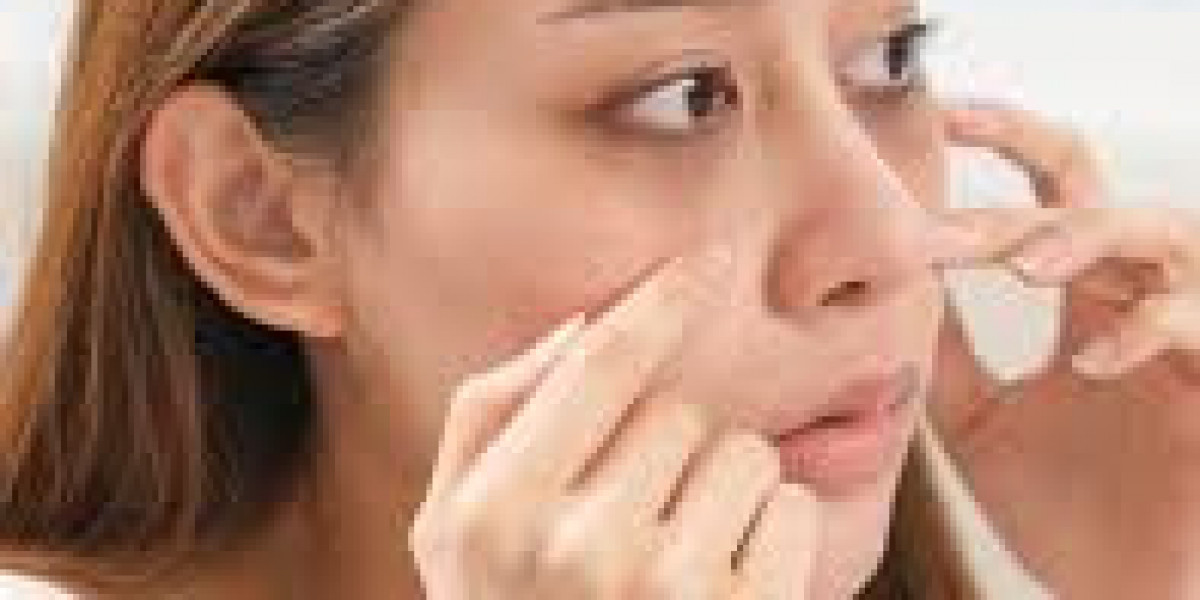Dark circles under the eyes are a common aesthetic concern that can affect both men and women. While they are often associated with lack of sleep, the reality is that genetics and lifestyle both play a crucial role in their development. Some people are born with a predisposition to dark circles, while others develop them due to external factors such as stress, poor diet, or excessive screen time. If you are struggling with dark circles and looking for a professional Dark Circle treatment in Islamabad, understanding the underlying causes can help you determine the best course of action.
The Role of Genetics in Dark Circles
1. Inherited Skin Structure
Genetics influence skin thickness, melanin levels, and the presence of blood vessels under the eyes. Some individuals inherit naturally thinner skin under their eyes, which makes the underlying blood vessels more visible, creating a darker appearance.
2. Family History of Hyperpigmentation
If your parents or grandparents have dark circles, there is a high chance you will develop them as well. Some ethnic groups, particularly those with darker skin tones, are more prone to pigmentation under the eyes due to higher melanin production.
3. Deep-Set Eyes and Bone Structure
Facial structure also plays a role in how dark circles appear. People with deep-set eyes may naturally have shadows under their eyes, making them look darker even if there is no actual pigmentation.
4. Poor Blood Circulation
Some individuals inherit sluggish blood circulation, which can cause blood to pool under the eyes, creating a bluish or purplish tint. This is more common in people with fair or thin skin.
Lifestyle Factors That Cause Dark Circles
While genetics determine your predisposition, lifestyle choices can make dark circles worse or even cause them in people without a genetic tendency.
1. Sleep Deprivation and Fatigue
Not getting enough sleep leads to pale skin, making blood vessels under the eyes more noticeable. Lack of sleep also causes fluid retention, leading to puffiness and shadowing.
2. Stress and Eye Strain
Constant stress and excessive screen time strain the eyes, leading to dilated blood vessels and darker under-eye circles. Spending long hours on digital devices without breaks can worsen eye fatigue and contribute to discoloration.
3. Dehydration
When the body lacks hydration, the skin becomes dull and thin, making dark circles more prominent. Proper water intake helps maintain skin elasticity and reduces pigmentation.
4. Sun Exposure
Excessive exposure to UV rays triggers melanin production, leading to hyperpigmentation under the eyes. People who don’t use sunscreen are more likely to develop sun-induced dark circles.
5. Poor Diet and Nutritional Deficiencies
A lack of essential nutrients such as iron, vitamin C, and vitamin K can contribute to dark circles. Iron deficiency (anemia) reduces oxygen supply to tissues, making the under-eye area look darker.
6. Alcohol and Smoking
Smoking reduces oxygen levels in the blood and accelerates collagen breakdown, leading to premature aging and dark circles. Alcohol dehydrates the skin, making dark circles more visible.
7. Rubbing the Eyes Frequently
Constantly rubbing the eyes due to allergies, dryness, or irritation can damage delicate under-eye skin and cause pigmentation.
Genetics vs. Lifestyle: How to Tell the Difference?
Genetic Dark Circles:
- Appear at a young age and may not fluctuate much over time.
- Do not improve significantly with changes in sleep or hydration.
- Often accompanied by a family history of dark circles.
- Usually associated with naturally thin skin, deep-set eyes, or high melanin levels.
Lifestyle-Induced Dark Circles:
- Develop or worsen over time due to stress, poor diet, lack of sleep, or environmental factors.
- Improve with proper hydration, sleep, and dietary changes.
- May appear darker after prolonged sun exposure, screen time, or eye strain.
- Can be reduced with a healthy skincare routine and medical treatments.
How to Reduce Dark Circles?
Whether your dark circles are caused by genetics or lifestyle factors, there are several ways to reduce their appearance:
1. Improve Your Sleep Routine
Aim for 7–8 hours of quality sleep each night. Using an extra pillow to keep your head elevated can prevent fluid buildup under the eyes.
2. Hydrate and Eat a Balanced Diet
Drink plenty of water and consume foods rich in iron, vitamin C, and antioxidants. Leafy greens, citrus fruits, and nuts help improve blood circulation and skin health.
3. Use Sunscreen and Sunglasses
Apply sunscreen daily and wear sunglasses to protect the delicate under-eye area from UV damage and pigmentation.
4. Apply Cold Compresses
Chilled tea bags, cucumber slices, or ice packs can constrict blood vessels and reduce puffiness and discoloration.
5. Reduce Screen Time
Take frequent breaks from screens to prevent eye strain. The 20-20-20 rule (looking at something 20 feet away for 20 seconds every 20 minutes) can help relax the eyes.
6. Use Eye Creams with Active Ingredients
Look for products containing vitamin C, retinol, hyaluronic acid, and caffeine. These ingredients help brighten the under-eye area and improve skin elasticity.
7. Avoid Smoking and Excess Alcohol
Quitting smoking and limiting alcohol consumption can significantly improve skin texture and reduce dark circles over time.
Medical Treatments for Dark Circles in Islamabad
For stubborn dark circles that don’t respond to home remedies, professional treatments can provide more effective and long-lasting results:
1. Chemical Peels
Mild chemical peels containing glycolic acid or retinoids help exfoliate and lighten dark pigmentation under the eyes.
2. Laser Therapy
Laser treatments target melanin deposits and promote collagen production, improving under-eye brightness.
3. Dermal Fillers
Hyaluronic acid fillers help plump up hollow areas, reducing shadows and dark circles.
4. PRP (Platelet-Rich Plasma) Therapy
PRP injections use the body’s natural healing properties to regenerate skin and reduce pigmentation.
5. Microneedling
Microneedling stimulates collagen production and enhances skin texture, making dark circles less visible.
6. Medical-Grade Skincare
Dermatologists can prescribe specialized creams with hydroquinone, peptides, or retinol to address dark circles effectively.
Conclusion
Dark circles can be influenced by both genetics and lifestyle. While some people inherit thin skin or high melanin levels that make dark circles inevitable, others develop them due to poor sleep, stress, diet, or environmental factors. The good news is that a combination of preventive measures, skincare, and professional treatments can help manage and reduce dark circles effectively.
If you are searching for expert solutions, SKN Cosmetics Clinic offers advanced dark circle treatment in Islamabad to help you achieve a refreshed and youthful look. Their team of experienced dermatologists provides personalized treatment plans based on your skin type and concerns, ensuring optimal results.
By understanding the cause of your dark circles and taking the right steps, you can restore a bright and rejuvenated appearance!








